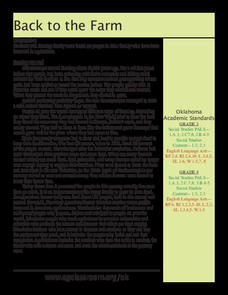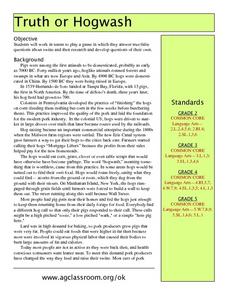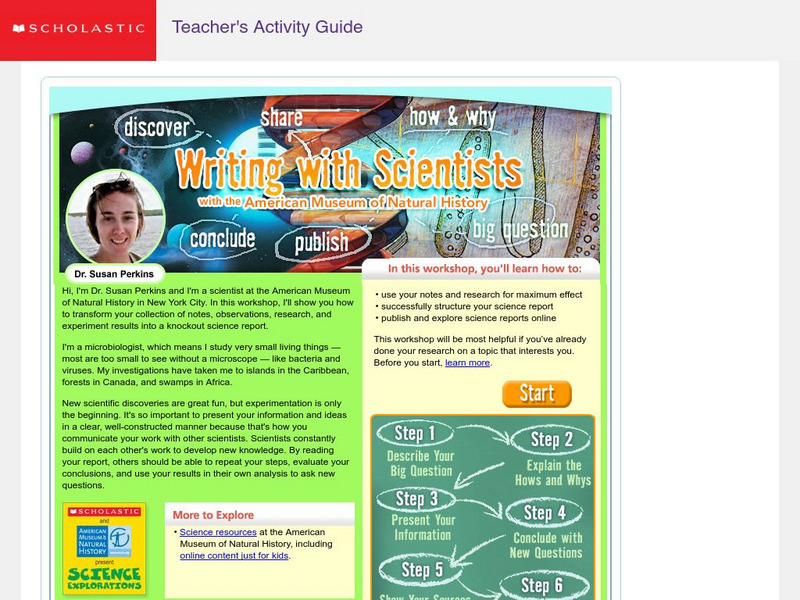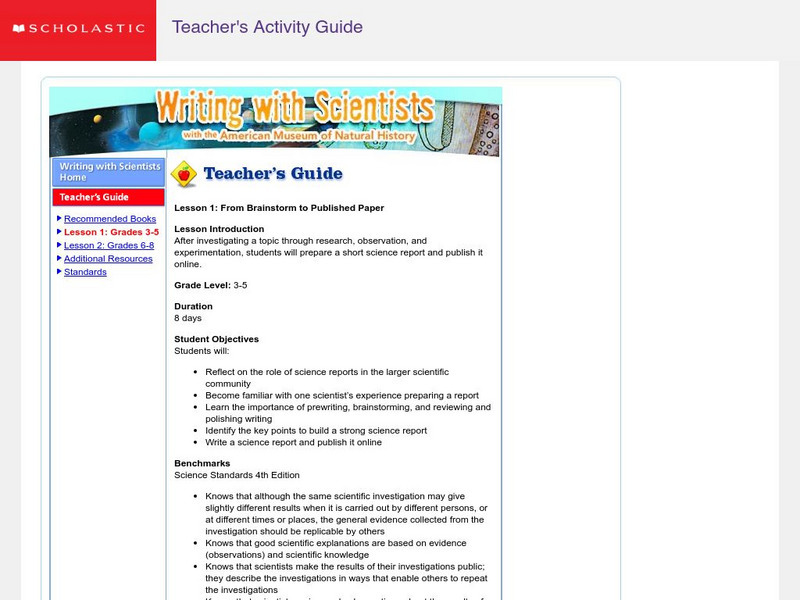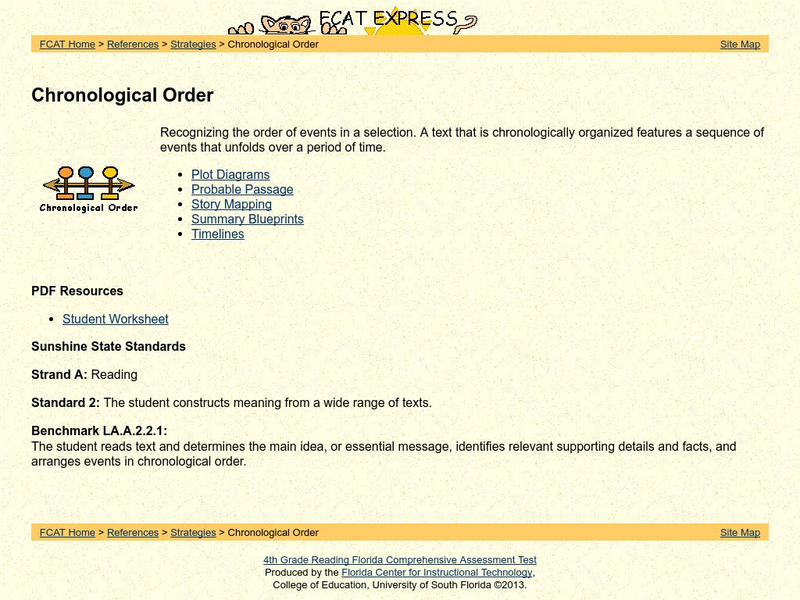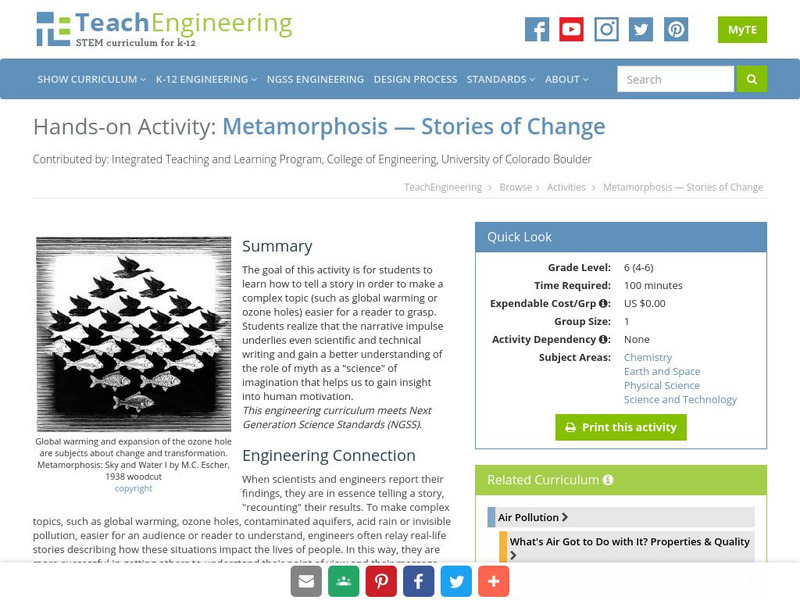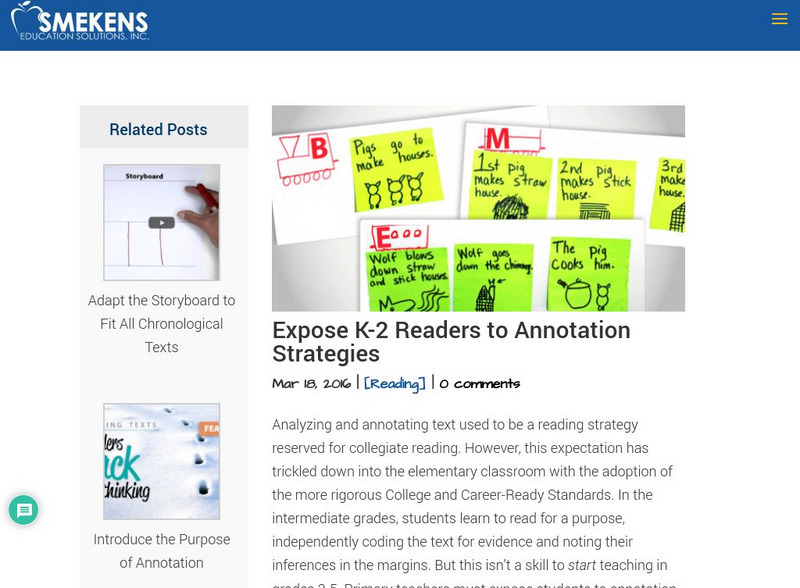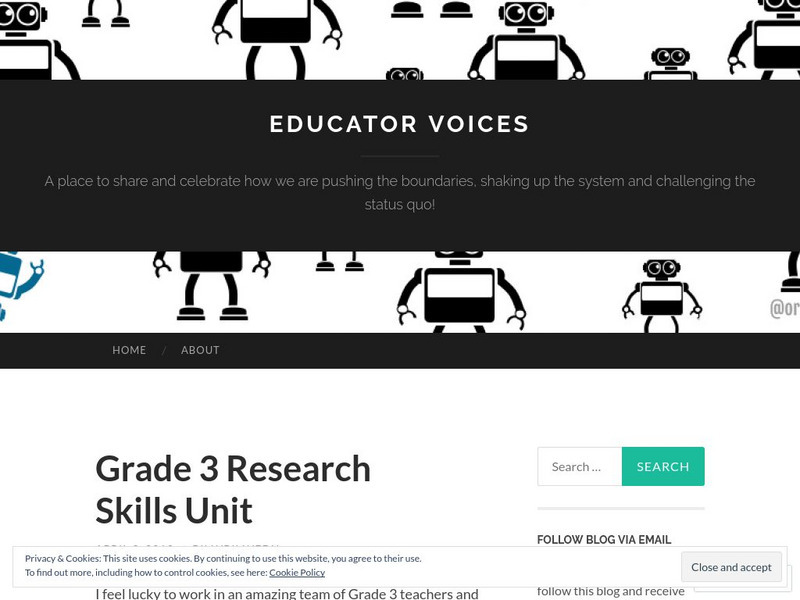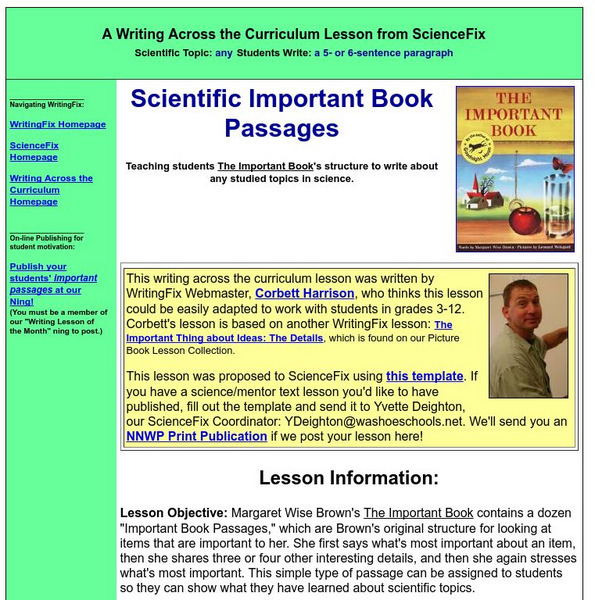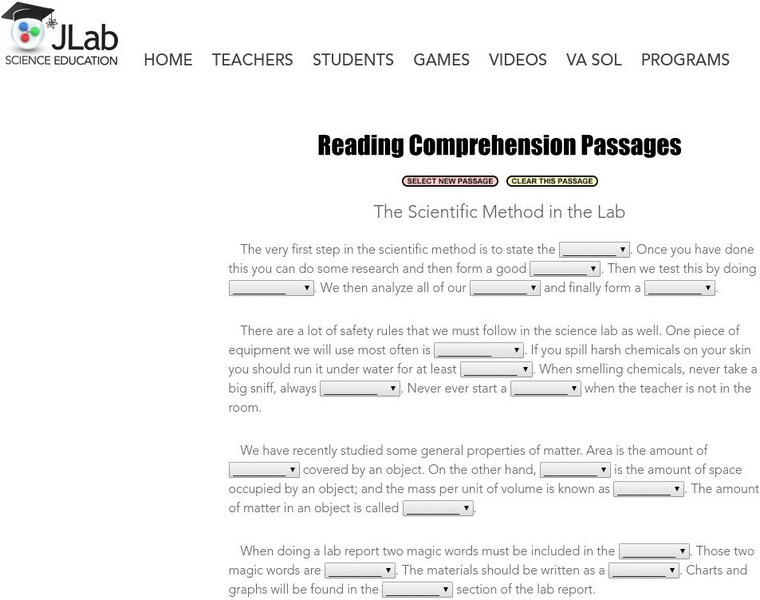Curated OER
Bread in a Bag
This lesson focuses on making bread, but also spends some time on the origins of wheat. In order to make the bread, each class member receives a kit full of the materials they will need. Included here is a detailed list of instructions...
Curated OER
Ag In The Outfield
Young scholars explore baseball. This is a cross-curricular plan that includes math, history, and agriculture. Pupils use their five senses to observe the materials a baseball is made from and identify the agricultural products used. In...
Curated OER
Just Lookin' For a Home
What is a boll weevil? Your class can find out that and more by following the activities included here. Pupils read an article, sing a boll weevil song, add to the song with their own original lyrics, illustrate the song, study the...
Curated OER
Back to the Farm
Read up on farming and ranching and connect this information to your learners' lives. After reading, send class members home to fill out a family tree and trace their family history, focusing on farming and ranching backgrounds. Once...
Curated OER
Truth or Hogwash
Explore the history of domesticated pigs and their important byproducts. After discussing the use of pigs, class members create game boards describing the animals. While playing the game, they determine if the answers are true or...
Scholastic
Scholastic: Writing With Scientists With the American Museum of Natural History
Follow this six-step method and you'll have a good understanding of what a good scientific research paper involves and how it is organized. There are plenty of samples for you to look at. This explanation is also very helpful for...
University of South Florida
Fcat Express: Plot & Conflict Resolution
Strategies to help students understand the elements of a story provided by a standardized test preparation site intended for fourth grade. Includes strategies such as DLTA/DRTA, Plot Diagrams, Story Clock, Story Mapping, Summary...
ReadWriteThink
Read Write Think: Comics in the Classroom: Introduction to Narrative Structure
Contains plans for four lessons that teach students about narrative plot structures by using "The Three Little Pigs" fairy tale or a similar story. In addition to objectives and standards, this instructional plan contains links to sites...
Scholastic
Scholastic: Writing With Scientists
After students investigate a topic through research, hypothesizing, observing, and experimentating, teachers can use this lesson to help their students prepare short science reports and publish them online. The Writing with Scientists...
Other
Reading Quest: Strategies for Reading Comp.: History Frames: Story Maps
This activity will help you teach students chronological order as well as identifying key people and events. Printable worksheets.
University of South Florida
Fcat Express: Chronological Order
Strategies to help students recognize the order of events in a selection provided by a standardized test preparation site intended for fourth grade. Includes strategies such as plot diagrams, probable passages, story mapping, summary...
TeachEngineering
Teach Engineering: Metamorphosis Stories of Change
The goal of this activity is for students to learn how to tell a story in order to make a complex topic (such as global warming or ozone holes) easier for a reader to grasp. Students realize that the narrative impulse underlies even...
TeachEngineering
Teach Engineering: Pingus Penguins: Writing Good Instructions
Students use the free computer game Pingus to learn how engineers, specifically environmental engineers, use their technical writing skills to give instructions and follow the instructions of others. Students learn to write instructions...
Texas Education Agency
Texas Gateway: Synthesize Ideas in Informational/expository Texts
[Accessible by TX Educators. Free Registration/Login Required] Learn how to synthesize and make logical connections between ideas within a text and across two or three texts representing similar or different genres (including literary...
CommonLit
Common Lit: What Is Antarctica?
CommonLit.org is a wonderful resource to use in a Language Arts classroom. Each story or article is accompanied by guided reading questions, assessment questions, and discussion questions. In addition, students can click on words to see...
Better Lesson
Better Lesson: A Storm of Ideas
The first step in writing an informational text on the topic of students' choice is helping the student choose a topic of interest. Students will brainstorm ideas that will be possible final topics.
Other
Smekens Educational Solutions: Expose K 2 Readers to Annotation Strategies
This article discusses how to begin teaching students in K-2 to record their ideas about text using highlighters, colored pens, large graphic organizers, and sticky notes. Students can retell a story with a storyboard, use a web to find...
Other
Educator Voices: Grade 3 Research Skills Unit
Describes the process teachers went through to create a lesson unit where students first brainstormed what it means to do research, then were tasked with choosing a topic, researching it, and presenting on it several days later. The...
Scholastic
Scholastic History Mystery
Students will choose from a variety of concepts and can play a game to enhance their learning.
Writing Fix
Writing Fix: Scientific Important Book Passages
Young scholars read and examine the structure of The Important Book by Margaret Wise Brown and then follow that pattern while writing about the most important things about various scientific topics. Printable handouts and student samples...
Writing Fix
Writing Fix: Writing Scientific "Recipes"
Adapted from a lesson in the book 51 Wacky We-Search Reports by Barry Lane, this lesson asks students to read several recipes to gain an understanding of how they are written and the types of words they use. Then students demonstrate...
Curated OER
Mc Graw Hill: 4th Grade Use Details and Examples
When reading a story learn how to recall specific examples from the text to answer comprehension questions. In addition, you can also use story details to make inferences.
Polk Brothers Foundation Center for Urban Education at DePaul University
De Paul University: Center for Urban Education: I Can Analyze a Story or History [Pdf]
This graphic organizer can be used to help students analyze a story or a historical event. Students will look closely at the story's characters or people involved in the historical event. Then they will summarize the story or event, and...
Thomas Jefferson National Accelerator Facility
Jefferson Lab: Reading Passages: The New Scientific Method in the Lab
Read and fill in the blanks of this passage explaining the new scientific method procedure in the lab. Each blank has a dropdown menu with choices. When you finish, click CHECK MY ANSWERS. If you pick a wrong answer, the right answer...





